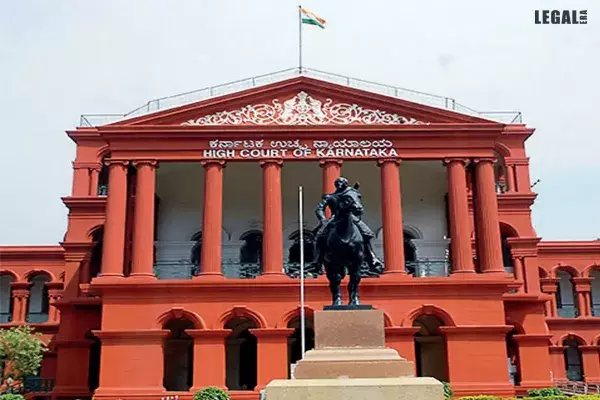Karnataka High Court: Judgment Debtor Cannot be Arrested in Arbitration Award Execution Proceedings as per Order XXI Rule 11 CPC
The Principal Secretary and Commissioner of the Department of Health and Family Welfare were granted relief by the Karnataka;

Karnataka High Court: Judgment Debtor Cannot be Arrested in Arbitration Award Execution Proceedings as per Order XXI Rule 11 CPC
The Principal Secretary and Commissioner of the Department of Health and Family Welfare were granted relief by the Karnataka High Court, as it overturned an order passed by the Commercial Court in Bengaluru. The Commercial Court had ordered their arrest in an execution proceeding, but the High Court deemed the order "patently illegal". Single judge, Justice Sreenivas Harish Kumar set aside the February 15, 2023 order.
Tejasco Techsoft Private Limited, the respondent in an arbitration case, sought to execute an award by applying under section 60 of the Code of Civil Procedure. They requested the attachment of both movable and immovable property found at the office of the petitioners. However, the Court determined that the award had achieved finality and, to prevent any delay in the payment of the award amount decided to order the arrest of the petitioners under Order XXI Rule 30 CPC.
Upon reviewing the records, the bench observed that the respondent did not submit an application for the arrest of the judgment debtors, which are the petitioners. Instead, they applied for the attachment of both movable and immovable property.
During the proceedings, the respondent's counsel argued that the lower court had taken into account the respondent's oral application, which led to the order for the arrest of the petitioners. The counsel referred to Order XXI Rule 11 CPC.
In response, the bench stated that while the provision allows for the judgment debtors to be arrested based on an oral application, the condition for such an application is that the judgment debtor must be present within the court's precincts at the time of the decree's passing. Otherwise, an oral application for arrest cannot be considered.
Furthermore, the High Court emphasised that the execution was based on the arbitrator's award, not a court decree. As a result, Rule 11 of Order XXI CPC cannot be applied in this case.
The High Court provided clarification that the procedure for detaining judgment debtors is set out in Order XXI Rule 30 CPC. There are specific rules in Order XXI Rules 37 to 40 CPC that pertains to the arrest of judgment debtors.
While allowing the petition the Court held “The judgment debtors are the officers of the Government, and issuing warrant against them without issuing arrest notice cannot be sustained. In this view of the matter, the impugned order suffers from infirmity.”


